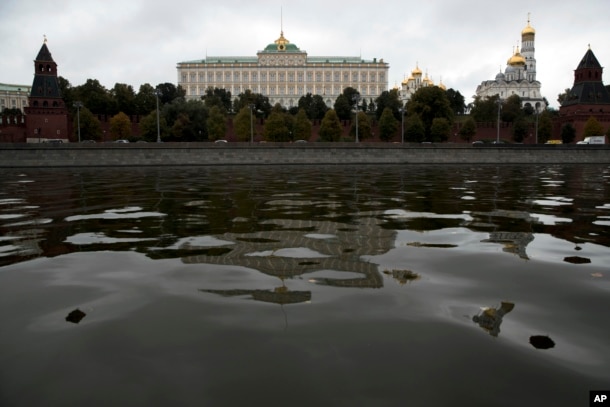
Russia’s Syria Campaign Seen Purely as Bid to Prop Up Assad
Victor Vladimirov
VOA News
MOSCOW — The Russian air force’s bombing campaign in Syria marked its first anniversary Friday, with Kremlin spokesman Dmitry Peskov saying there was no «time frame» for the operation.
The Kremlin has officially declared the main objectives of its air campaign in Syria to be eliminating radical Islamic extremists in Syria and protecting Russia from the spread of international terrorism. However, independent experts and other observers both inside and outside Russia say that Moscow is using any means necessary to keep the regime of Bashar al-Assad in power.
The Syrian Observatory of Human Rights reported Friday that about 3,800 civilians, almost a quarter of them children, had been killed in Russian airstrikes in Syria since the start of Moscow’s air campaign. Kremlin spokesman Peskov dismissed the observatory’s casualty estimates as unreliable.
Meanwhile, the World Health Organization said Russian and Syrian government bombardment of rebel-held eastern Aleppo had killed 338 people, including 106 children, over the past week alone.
‘Goal’ questioned
In an interview with VOA’s Russian service, Alexei Malashenko of the Carnegie Moscow Center recalled that at the outset of the air campaign in Syria a year ago, Moscow declared that its goal was «victory over ISIS,» an acronym for the Islamic State group.
«On June 30, ISIS celebrated the second anniversary of its existence,» Malashenko said. «Therefore, the question arises: Who was the operation directed against after all? The answer is obvious: It was an action in support of Bashar al-Assad.»
In Malashenko’s view, Russia’s military campaign in Syria has achieved almost nothing.
«Yes, Bashar has survived,» he said, noting that before Russia launched its air campaign in Syria, 50 percent of the personnel in Assad’s army had «run off» and 60 percent of its armored vehicles had been destroyed.
«What is different now?» he asked. «Imagine for a second that the [Russian] operation were suddenly curtailed. Where would Assad be?»

The Kremlin with its palaces and churches is reflected in the Moskva River waters in Moscow, Russia, Sept. 30, 2016. Russia has entered a second year of its military operation in Syria.
Malashenko said the Assad regime was «pathologically weak» and «capable of absolutely nothing without the support of Russia,» while «Moscow does not know what to do next.»
«To support Assad eternally is impossible,» he said. «There are also no prospects for establishing some kind of post-Assad, pro-Russian lobby in Syria.»
The situation in Syria looks good only when looked at in Kremlin propaganda reports, Malashenko added.
«By the way, if you count as I have, the number of militants who the [Russian] national [TV] channels say have been killed [in Russian airstrikes in Syria], there shouldn’t be any left at all,» he said. «Then who’s fighting?»
No disincentives seen for Russia
Still, Nikolay Kozhanov, an associate in the Russia and Eurasia Program at Chatham House, a London-based international affairs think tank, said neither the growing number of civilian casualties in Syria nor the growing losses among its personnel there would push Russia to curtail its military operation in Syria.
Kozhanov told VOA that he didn’t foresee a situation in which the Russian army would suffer «intolerable losses, at least when it comes to the officially declared troops there.» He noted that these personnel consist mainly of a relatively small number of jet pilots, unmanned drone operators and missile crews.
Kozhanov added that losses among Russian servicemen fighting in Syria under the guise of being «volunteers» would have no impact on Moscow’s will to continue its operation there.
He also said he thought the Russian propaganda machine would be able to succeed in justifying any such casualties.
«Any such losses will be presented as holy sacrifices that prove the righteousness of this war, or they will simply be covered up, as has happened before,» he said.

